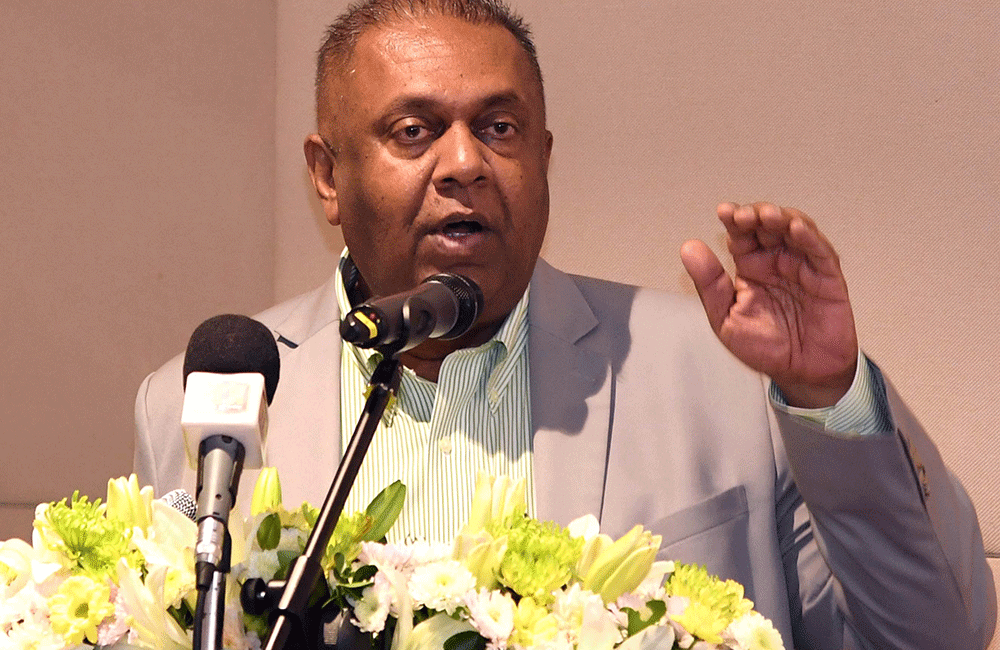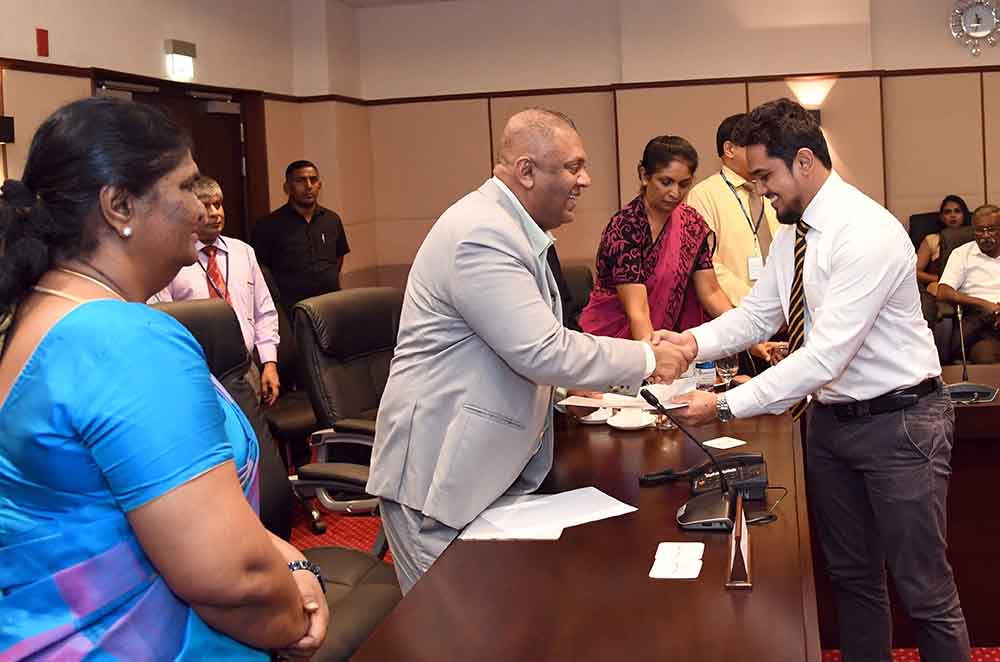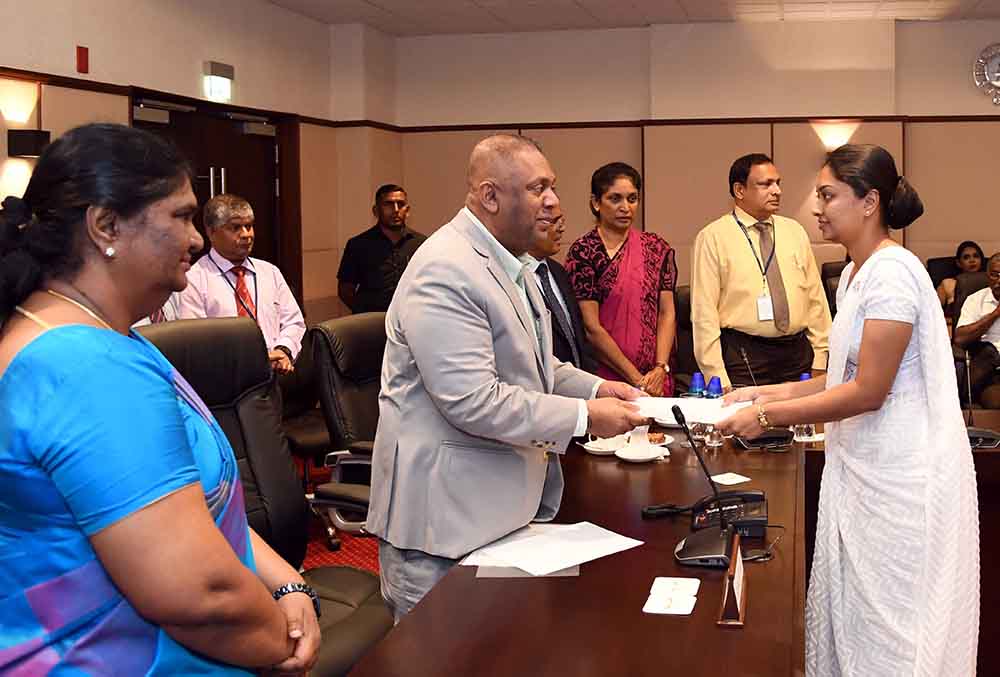Finance Minister Mangala Samaraweera said that he expects to reduce the Value Added Tax by 2.5% by the year 2020. As the entire population is burdened with heavy indirect taxes, steps would be taken to reduce the VAT to 12.5% from the current amount of 15%.
Samaraweera made these remarks at an event held at the Ministry of Finance to hand over letters of appointment to 68 newly recruited Assistant Superintendents of Customs. Speaking at the event, he emphasized that the new appointees were selected purely on merit and that there was no political intervention unlike in the past. According to the Customs Department, over 10,000 applicants had sat for the competitive exam with 227 passing. 68 were then selected after an extensive interview process.
The Minister noted that the government’s tax revenue base has been on a growing trend as the public are coming to terms with their responsibilities. Referring to the new Inland Revenue Act, he said that during the first month after the act was implemented, around 46,000 new tax files were opened. He added that the Customs and the Inland Revenue Departments are the two main agencies that bring revenue to the government.
"The Customs Ordinance we have is over 200 years old, introduced during the reign of Queen Victoria and therefore, a new Customs Act would be brought to Parliament before the next budget", he said.
“It is the poor people who mostly pay taxes to the government by way of indirect taxes. We should relieve them of this burden. Therefore, I expect to reduce VAT by 2.5% in the year 2020”, The Minister declared.
We are still a divided nation
Minister Samaraweera went to say that even after 70 years of Independence, the country could not achieve peace as the people were still quarreling on the basis of race, religion and party politics.
"After the 30 years of conflict, certain forces were trying to create an authoritarian rule under the guise of war. Fortunately, the revolutionary forces managed to change the destiny of the country in 2015. Since then, Sri Lanka has been revived under the three pillars of democracy, reconciliation and development".
Inherited a debt-ridden economy
While underscoring the importance of actively contributing to the economy by way of revenue collection, Minister Samaraweera said that this government inherited a debt-ridden country in 2015. However, the government has been able to manage the national debt stock and debt servicing by increasing the national revenue.
"After independence in 1948, the highest amount of debt servicing has to be paid in 2018. The total foreign debt to be paid this year is USD 2,845 million of which USD 1,789 million has to be paid for government borrowings done before the year 2015. Only an installment of USD 1,056 needs to be paid for foreign loans borrowed after 2015. Accordingly, 63% of debt installments to be paid this year are repayments of debts that had been borrowed during Mahinda Rajapaksa’s tenure as the Minister of Finance. It was at the level of 75% in 2017", he added.
According to the Minister, this situation would further worsen next year as USD 4,285 million have to be paid in 2019 of which USD 3,315 or 77% of the repayments are for debts obtained during the Rajapaksa regime.
Public debate on debt stock still in the balance
Speaking at a press conference on Tuesday (22), Samaraweera challenged former Finance Minister and current Parliamentarian Mahinda Rajapaksa for a public debate on national debt stock and debt servicing. Even though Rajapaksa has not yet responded to the challenge, his son Namal was quick to offer a meek response by asking the Minister to focus on the current deluge instead of public debates.



Leave your comments
Login to post a comment
Post comment as a guest